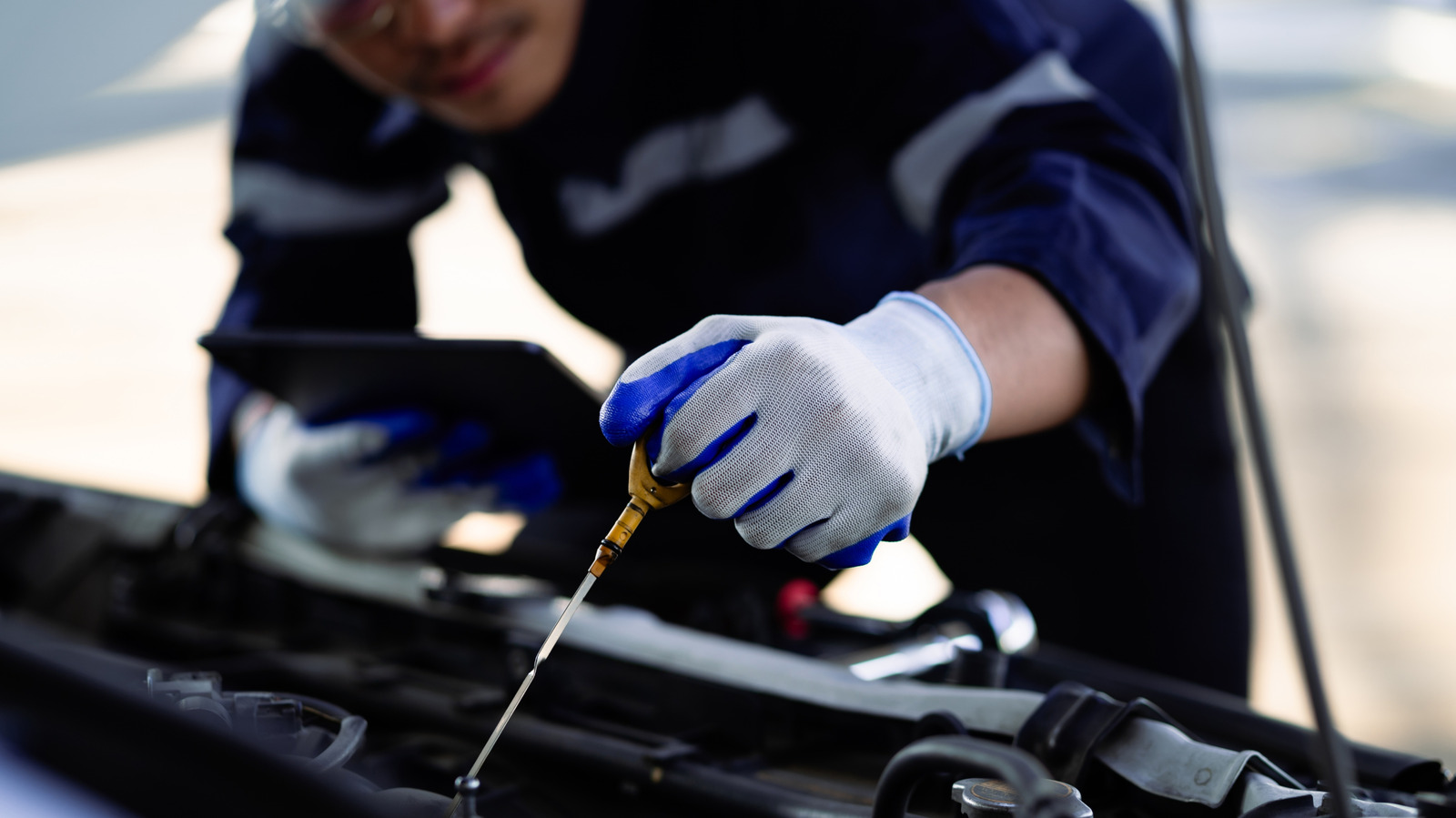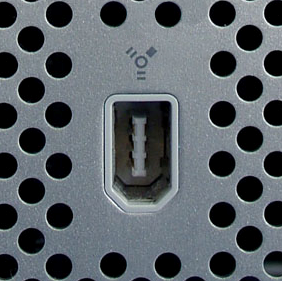This proactive approach helps to avert potential engine damage
Ah yes, the old “you’re too stupid to do anything by yourself, so we kindly prevent you from trying”
I would argue that it adds a new failure point, and a catastrophic one at that.
Yes, many hunans don’t monitor their oil properly. I’ve seen some destroy engines because they thought the low oil light could be ignored for a week.
Even if you still had the dipstick, owners would become reliant on the sensor and grenade the engine when it gets it wrong. Remember how Teslas had hoods that flew open while driving? The problem wasn’t the latch. The problem was owners relying on a crappy sensor.
I mean, I honestly don’t have a problem with a notification telling me I need to top off my oil, or telling me I’ve driven enough that it is time for the scheduled maintenance. I just also want to be able to manually check the oil level with a dip stick.
This is why it was removed from auto transmissions, people would overfill their transmissions and it would froth up and burn out the clutches.
To be fair, when you drive a dangerous vehicle on a public road, you’re not only putting yourself in danger…
I’m not saying that we shouldn’t ever trust people to do their own repairs, but just thought i’d play devil’s advocate
I mean, yeah, most people probably don’t know what they’re doing but does that mean that no one should be able to fix their own stuff any more?
Literally said the opposite.
No, see, they just relocated the dipstick. You can locate it just behind the steering wheel, right above the driver’s seat.
PEBKAC.
PEBCAC (car and chair lol)
I’ve had a car with where the oil pressure sensor failed; combine that with an oil leak, and you quickly have a major problem. So, what happens when the sensor telling you the oil level fails? A dipstick is extremely unlikely to ever fail to work correctly, so…?
You would think an engineer would understand this… I assume this is a decision from management.
Engineers are people like everyone else and some people have no qualms fucking over other people for money.
The Engineer was also told they would get a bonus if they could make maintenance more common and more expensive under the guise of improved technology.
“Grok told me this was the right thing. Nom nom, this superglue bathsalt pizza is delicious”
reinventing the wheel in the DUMBEST way possible at best.
planned obsolescence when the sensors or the head gasket inevitably fail at worst.
This is a reactionary response, you’re just arguing, slow down a bit.
Do you see a value in a check engine light that tells you something is wrong in between full inspections? This is similar, this is telling you there isn’t enough oil and damage is occurring before you get a chance to inspect the dipstick.
It’s not planned obsolescence unless they also make it unreasonable to service. We already expect to routinely service engines, and they are already very complex and full of sensors, sure this is adding to the complexity but it’s relatively pretty minor.
The argument being made, and I agree with it, is that the benefits of an additional long-serving sensor way outweigh the con of having one additional sensor in your car. You get early warning before damage occurs, you get built in fraud protection when you’re changing your oil at a shady chain, you eliminate a direct access port for dirt to contaminate the oil.
all the things you said are good provided the dipstick is still there. cost nonwhitstanding.
which is already a thing in some cars.
a lot of the ones that get rid of the dipstick (its semi-common on transmissions now) end up being disposable.
friend of mine had a ford like this. and it cost more than the car to fix after only 10-15ish years of use. its terrible.
friend of mine had a ford like this. and it cost more than the car to fix after only 10-15ish years of use. its terrible.
Yeah, that’s just how it goes as the engine becomes more complex, leaving a dipstick there is not gonna change that…
leaving a dipstick there and not recommending against changing your transmission fluid would not have ruined the car in a measly decade.
please don’t trust these corporations. unrepairable items are engineered to be unrepairable, and vice versa.
The article is really lazy about citing its sources.
many cars don’t come with dipsticks anymore. Some sources say
Are these some sources in the room with us?
it’s because automakers don’t trust us to use them, so why make them? (That’s kind of along the lines of rather have it and not need it than need it and not have it, right?) Or maybe it’s some kind of conspiracy to keep drivers coming in for oil changes more often.
This is like an eighth grader padding out a book report.
But in actuality, it’s because a lot of things are going digital.
Tl;dr: Here’s a higher quality source: Why the Reliable Dipstick is Sliding into Obsolescence
The customer has to pop the hood. They might get their hands dirty. It’s not the modern way of doing things
I have a better source:
MONEY
Why the clickbait? Just put why in the title or post description
New Cars Don’t All Come With Dipsticks Anymore Because Of Digital Oil Level Measurement
Let me guess, this Digital Measurement is only availible to CeRtIfIeD tEcHnIcIaNs iNtO wHoSe aSsHoLe we pUsHeD oUr fInGeR at lEAsT 30 Cm?
Well, currently it’s available on the dashboard. So no, no quite. But eventually, yeah it’s pretty easy to predict it’s heading the way you were thinking, just give it time.
My wife’s electric car doesn’t have a dipstick.
Unless you’re sitting in it. ;)
Oil is essential. However, those manufacturers that claim you have to change synthetic oil three times a year are full of shit.
Depends on how much you drive, and what the recommended interval is. If the interval is 7k miles, and you drive 18k in a year, yeah, you need to change the oil 3x/year.
It seems to me that counting the number of cycles each makes, and basing your intervals off that would make more sense than mileage. If I’m constantly running at high RPM, that should require more frequent oil changes in terms of mileage.
That chronological duration is more of an estimate based on how much the “average” car may be driven and is just to give someone an idea of the frequency.
The standard for cars built for synthetic (“conventional” cars may have a bit more susceptibility to contamination, so they normally have shorter durations) usually usually go for 10-15k miles (~16-24k km). So going 30-45k miles in a year isn’t really unheard of. (Some cars are much less, while others like company cars/taxis can be more than double)
I know it can last longer than that, but I think there is a benefit to doing so even if it doesn’t need changed that often. It’s the same reason I have my mechanic do my oil changes instead of doing them myself. It’s so that they can look at the rest of the car and let me know about problems before they become a much more expensive fix. Kinda like going to a doctor for a yearly checkup and blood work.
I can fix almost anything on a car if I know what the issue is and have the shop manual, but I don’t work on cars enough to know all warning signs or quickly diagnose things.
However, I do realize how difficult it can be to find a mechanic that is trustworthy, competent, and reasonably priced. I’m generally not a fan of dealership mechanics or the places that are dedicated to cheap oil changes. Not saying none of them have good mechanics, but it can be hit or miss.
My wife has a 2016 Honda Odyssey, and having grown up working on cars because my dad was a mechanic, I was shocked to learn that there is no transmission fluid dip stick. It’s considered a closed system and never needs to have the fluid changed, allegedly.
The U660F transmission in my wife’s 2015 Highlander doesn’t have a dipstick. Luckily that transmission is solid and easy to service anyway, you just need a skinny funnel to fill it.
It’s a lifetime fluid! For the life of ur transmission! If it’ll make it to 100k miles they could care less what happens after that. When your 16 odyssey needs a transmission at 130 are u gonna put 6k into it or go buy a other car?
Back when I worked at a BMW store we had to, after changing the oil, start up the vehicle and get it up to temperature before it would give us a reading. Several times the vehicle caught on fire for some reason during this process. So fucking stupid.
The real reason is that owners would not reseat the dipstick properly, which would cause a vacuum leak and a lean fuel mixture that would trigger the CEL.
But you can’t expect Jalopnik writers to know basic facts like this.
The real reason is that owners would not reseat the dipstick properly, which would cause a vacuum leak and a lean fuel mixture that would trigger the CEL.
That is absolutely piss-poor design. But definitely a BMW thing to do.
I mean, easily catching fire is a thing since German tanks in WWII, so yes.
I’ve wondered this for a while and this seems like a good time to ask: Do electric cars use motor oil in the same way as an internal combustion vehicle? Like do you need to get oil changes in an all electric the same way and have a need for a dipstick?
Electric cars do have oil that will ultimately need changing but it’s less exposed to contaminants than the engine oil in a internal combustion engine and therefore will last a lot longer. EVs typically have a reduction gearbox and differential and these will require oil changes in a similar fashion to a manual gearbox or differential in a ICE vehicle - i.e. barring exceptional circumstances it will last long enough to get out of warranty but don’t believe it will never need changing.
Nope. The only fluid I worry about in my EV is windshield wiper fluid.
Eventually, you’ll have to top up your blinker fluid as well.
Oh, dip!
(Pun intended)
No brake calipers or power steering onboard?
Hmm do brake calipers age? You’re not really using your brakes during normal driving.
Power steering and other hydraulics would need changing eventually.
Brake fluid is hygroscopic and will accumulate water over time despite being in a nominally sealed system. Water in solution with brake fluid noticeably lowers the boiling point which leads to issues under repeated braking (e.g. down long steep hills) as the fluid boiling means you lose braking capacity in that circuit.
You should ideally be changing the brake fluid every few years (2-3 being the typical recommendation) and that applies even if the brakes are used less often.
Seems like 60k miles for brake fluid replacement and 80k miles for low conductivity coolant replacement. Then also replace the normal coolant at 120k miles. This is for an Ioniq5.
I feel like most electric cars don’t need to use brakes going downhill. The regen is heavy enough to maintain a reasonable speed.
True, and ICE cars don’t need to use brakes on long hills either. Use your transmission; that’s why they put those manual shift features into the car
The Regen in my Kona will stop me even on the steepest hill if I let auto do its thing. Shits wild.
You can use DOT 5.1 to significantly increase that wet boiling point, but it’s expensive for normal car use. I usually use it in my motorcycle, since I’ve experienced brake fade on that before, and it’s… Not fun.
DOT 5.1 to significantly increase that wet boiling point, but it’s expensive for normal car use
Huh? In here you can get DOT5.1 for the same price than DOT4. Roughly 10€ per litre, depending on brand and how big bottle you get.
And the blinker one right? EVs still have that afaik.
Got my mechanic to replace the transmission fluid in mine after 80,000km, cost $90NZD
I’m not sure if this is universally true but I’ve never seen a fully electric vehicle that uses motor oil. Hybrid vehicles with an internal combustion engine and an electric drive train would still need it, of course.
Not having to take my car for oil changes is bliss.
There’s still hydraulic fluids and transmission oil in EVs but by the time you need to change that most people are long out of warranty and likely already onto their next car.
So strictly speaking there is oil and fluids that need replacing but like its such a long life span.
Wait, what? At least on every car I’ve owned, the recommended interval for a transmission fluid change was about 100k mi. Are most people buying a new car after less than 100k of use? That seems ridiculous! My Corolla is almost at 250k now, I’ve had it since 2015, and I’m expecting her to hit 1m mi before I put her out to pasture.
It still has oil in the transmission. And yes, you are supposed to change it occasionally because its high slip friction oil that burns over time.
i have oil in the differential that needs occasional replacement
Because manufacturers are scummy, that’s why.
If you can’t check the oil, you can’t complain to the dealer can you ? Once the warranty’s over good luck proving anything.
They’re not that dumb.
I hate all these automatic sensors in new cars. I don’t usually buy new cars, I get ones that are a few years used. Almost all of them have a light on the dash for a “tire error” because the stupid sensor has died and no one in their right mind wants to spend $300 to replace a thing that tells you your tire pressure is low. Plus, the things die in a few years anyway.
I just do the Homer Simpson solution and put a bit of black tape over the tire error light.
$300? A TPS sensor replacement should cost like $75 including the sensor itself.
About $300 is what the mechanics in the area usually charge. The dealership is more.
$70 at Discount Tire.
Each?!?!
Fuck that. I’ll pay $300 for the set and let them do the work for me. LOL
Yeah, $70 for one sensor installed is pretty cheap. Is your $300 number for all 4? Because that’s more expensive than Discount Tire’s price…
They are like 50 bucks for all 4 tires on ebay. Just get a wheel shop to install it.
or…just look at the tyres ?
Yeah bro let me just eyeball the difference between 32 psi and 36 psi with my fucking laser eyes.
About $300 is what the mechanics in the area usually charge.
That’s complete robbery. Go to a tire shop.
A tire pressure sensor sensor? And the tire pressure sensor sensor includes the sensor itself? 😉
TPMS = Tire Pressure Monitoring System
So yes, “TPMS sensor” is a valid term.
Just forcing more people towards mechanics. Can’t see levels or if there might be an issue with a lubricant, so if you burn up a transmission, guess you gotta buy a new one.
Knowing the exact oil level is very important for new cars. The piston rings are now made of softer metal to get a few more mpgs. If you overfill oil, you will get blow by, damage the rings, and start burning oil. Toyota now has an involved process of changing oil, running the engine, then topping off the oil while the engine is hot so as to not overfill. But not even my dealer follows that official procedure Toyota put in their manual.
If the dealer isn’t doing that and you know about it what are we even talking about. Pretty casual well I’m paying them to fuck my engine oh well anyway














